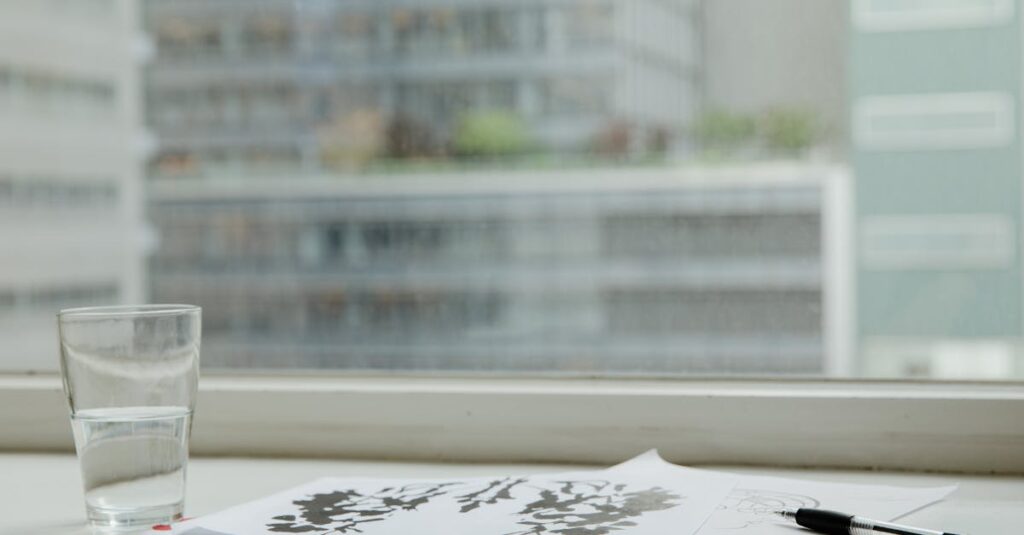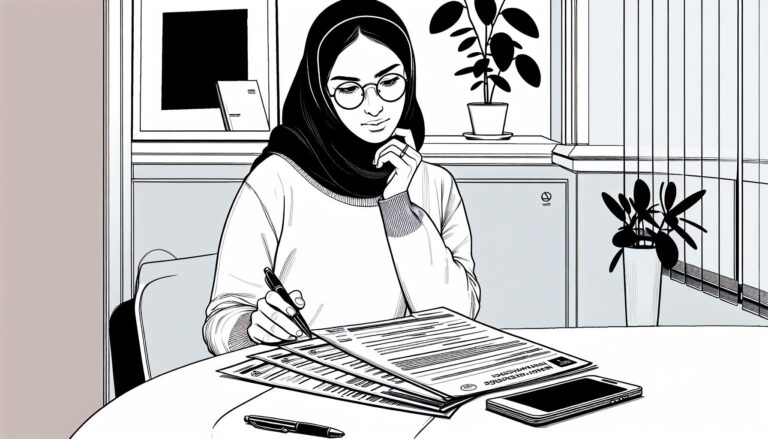I’ve always been a firm believer in the power of a clean, organized space. It’s not just about aesthetics; decluttering can have profound psychological benefits too. From reducing stress to boosting productivity, tidying up can truly transform your mental health.
Think about the last time you cleaned out a messy drawer or closet. Didn’t it feel like a weight was lifted off your shoulders? That’s no coincidence. Decluttering can provide a sense of accomplishment and control, which in turn can boost your mood and self-esteem.
So, if you’re feeling overwhelmed, anxious, or just plain stuck, it might be time to tackle that pile of paperwork or overflowing wardrobe. You’ll be surprised at the positive impact it can have on your mental wellbeing. Trust me, it’s worth the effort.
Understanding the Connection Between Clutter and Mental Health
Dive a little deeper into the fascinating realm of psychology and you’ll find an intriguing correlation. Clutter isn’t just physical – it spills over into our mental and emotional state too. Essentially, the out-of-place items inhabiting our physical surroundings can actually interfere with our ability to think clearly and efficiently.
The fundamental root of clutter stems from our innate human instinct to gather and store. However, in today’s modern world where material possessions are plentiful, this instinct can result in a cluttered living or working environment. Various psychological studies have implied that this clutter – this external chaos – can negatively impact our mood, stress levels, and even cognitive function. But how does this happen?
- Mood and Self-esteem: If you’re surrounded by clutter, you might start to feel overwhelmed. Because our environment can have such a profound impact on our mood, a messy space can lead to feelings of anxiety and depression. Moreover, persistent clutter can undermine our confidence and self-esteem as we might associate it with failure – the failure to keep our living spaces clean and organized.
- Stress: Living or working in a cluttered environment can increase the levels of our stress hormone, cortisol. A study by Saxbe and Repetti found that women who perceived their homes as cluttered had higher levels of cortisol than women who described their homes as restful and restorative.
- Cognitive Function: Excessive clutter can make it more difficult for your brain to process information. A study published in The Journal of Neuroscience discovered that physical clutter in your surroundings competes for your attention, leading to decreased performance and increased stress.
| Study | Findings |
|---|---|
| Saxbe & Repetti | Higher levels of cortisol in women with cluttered homes |
| The Journal of Neuroscience | Clutter competes for attention, decreasing performance and increasing stress |
In the next section, we’ll look at the tangible benefits of decluttering and how you can start your decluttering journey. So stay with me – there’s more to learn and achieve.
The Impact of Decluttering on Stress Levels
It’s hard to deny the relationship between our physical environment and our mental state. When our surroundings are cluttered and disorganized, it’s not uncommon to feel a mirrored sense of chaos internally.
Numerous studies have confirmed this phenomenon, indicating a direct correlation between clutter and higher levels of the hormona^l stress marker, cortisol. So when you’re living amidst disarray, the likelihood is, you’re putting your body into a state of constant, low-grade stress.
Consider the results of one particular study conducted by the Princeton University Neuroscience Institute. Researchers discovered that when the participants’ environment was cluttered, their ability to focus and process information was significantly impaired.
In fact, here’s a handy breakdown of the key research findings:
| Study | Clutter Impact |
|---|---|
| Princeton | Decreased focus and impaired cognitive functioning |
But it’s not all doom and gloom! There’s a silver lining here. The good news is that decluttering doesn’t just alleviate these adverse effects – it can also actively boost your mood and reduce stress levels. One survey by the National Association of Productivity & Organizing Professionals revealed that a whopping 82% of respondents felt less stressed after decluttering.
Here’s what the data has to say about the impact of decluttering:
| Action | Impact |
|---|---|
| Decluttering | Reduced stress in 82% respondents |
And there’s more to the story. The act of decluttering itself can also provide therapeutic benefits. It’s been compared to a physical version of meditation, bringing mindfulness and calm to those who engage in it.
So in the midst of our busy, hectic lives, taking some time to clean up our space could work wonders for our wellbeing. It’s a reminder that a serene space can provide the much-needed breathing room our brains so desperately crave. Decluttering may very well be the helping hand you need to reduce the relentless grasp stress tends to have on us.
Let’s set our sights on exploring how clutter affects our productivity in the next section. Stay tuned.
Boosting Productivity Through Tidying Up
Have you ever noticed how difficult it is to concentrate on your work when you’re surrounded by a mess? It’s not just your imagination — there’s real science behind it. According to the National Association of Professional Organizers, we spend one year of our lives looking for lost items in our homes and offices. That isn’t how I’d prefer to spend my days, and I’m guessing you wouldn’t either.
So how exactly does a clean environment boost productivity?
For starters, decluttering removes physical barriers. Reduced clutter means you’ll spend less time searching for misplaced items. This time can be better spent on productive activities. It’s a simple equation:
| No. of misplaced items (‘clutter’) | Time spent searching (Hrs) | Productive activities time (Hrs) |
|---|---|---|
| High | High | Low |
| Low | Low | High |
Moreover, decluttering positively affects your mental well-being, and a happy mind is a productive mind. Imagine working in a serene, organized space — that feeling of calm can do wonders for your productivity. Psychological studies suggest that clean spaces promote a clear mind, providing the mental space necessary for focused work.
There’s even evidence to suggest that the actions involved in decluttering itself can make us more productive. The practice requires decision-making, sorting and storing, all skills transferable to the workplace. Decluttering can be a sort of practice run for dealing with daily tasks, improving your efficiency in tackling them.
Ultimately, optimizing your environment through decluttering paves the way for optimal mental performance and productivity. It isn’t just about creating a physically appealing space — you’re also building a nurturing environment for your brain to focus and thrive.
It’s clear that boosting productivity translates to more than just a tidy space. It’s about enhancing your mind and life through a physical act. As we journey into further aspects of decluttering, we’ll explore how this practice impacts other areas of our lives.
Enhancing Mood and Self-esteem with a Clean Space
When you step into a clutter-free area, what feelings arise? Relief? Peace? Tranquility? It’s no coincidence. There’s a substantive connection between a clean space and enhanced mood. Extensive research reveals the varied coins of tidiness as improved mood, increased self-esteem, and diminished stress levels.
An uncluttered environment encourages serenity. Science agrees. A study from the Journal of Neuroscience found that clutter competes for attention, leading to decreased performance and increased stress. Clean spaces help alleviate this irritation, fostering positivity and reducing anxiety levels.
But it’s not just about mood. There’s more to it. Getting hands-on with decluttering brings a sense of achievement. It’s about result-oriented action. You set a goal, work towards it, and see the tangible outcome. This action-reward cycle leads to heightened self-esteem. It’s not just theory; it’s proven. A study by the Association for Psychological Science found an elevation in participants’ mood and self-esteem post a decluttering session.
Interestingly, a clean environment further enhances decision-making capabilities. A study in the Psychological Science journal indicated that people in tidy rooms are likely to choose healthier options. Ponder over that the next time you’re in a messy room.
| Journal | Finding |
|---|---|
| Journal of Neuroscience | Clutter decreases performance, elevates stress |
| Association for Psychological Science | Decluttering boosts mood, self-esteem |
| Psychological Science | Tidy environments encourage healthier decisions |
Decluttering is not just the act of cleaning. It’s the breaking down of physical barriers that construct mental blocks. It’s the stepping stone towards enhanced self-esteem and personal growth. A simplified living space enables you to focus on what truly matters: your well-being and productivity.
In the next segment, we will venture further into how decluttering impacts different domains of life, setting the stage for a deeper understanding of its multifaceted benefits.
Transforming Your Mental Wellbeing Through Decluttering
As we delve deeper into the psychological benefits of decluttering, it becomes evident how paramount a role it can play in transforming mental wellbeing. The act of clearing out unneeded items holds substantial influence on our mental health. However, this isn’t just about tossing out old items or rearranging a few shelves. There’s more beneath the surface that merits attention.
Firstly, let’s consider the sense of accomplishment we feel when we declutter. This can be a significant mood booster, instilling a feeling of control and satisfaction. Removing physical clutter translates into eliminating clutter from our minds. It sets the stage to undo the mental clutter that often weighs us down, fostering a light, free-feeling ambiance.
Secondly, there’s the element of mindfulness. Decluttering commands our complete attention on the task at hand. This focus on a specific target helps keep any creeping negative thoughts at bay. It’s like hitting a mental reset button. This learned attentiveness brings the added benefit of becoming a form of meditation and stress relief for many.
Finally, decluttering can further lay the groundwork for improved decision making. Every item we declutter is one less decision we have to stress over. With fewer daily decisions to make, our cognitive load lightens. This can result in increased feelings of tranquillity and control, leading to healthier decision-making.
Each of these benefits intertwines, creating a sturdy framework for positive mental health. As you continue the journey of decluttering your physical spaces, understand that you’re also clearing the path towards enhanced mental wellbeing. A clutter-free surroundings, in essence, influences not just our living spaces but our minds and ultimately, our lives.
Let’s continue to explore these impacts further, to reveal the often underestimated power of decluttering.
Key Takeaways
- Decluttering has profound psychological benefits, such as reducing stress, boosting mood, and enhancing productivity.
- There’s a significant correlation between clutter and mental health, with clutter negatively impacting mood, stress levels, and cognitive function.
- Decluttering can reduce stress levels and boost mood. It acts as a form of physical meditation, promoting calm and mindfulness.
- A clean, organized environment enhances productivity by removing physical barriers and promoting a positive mental state conducive to focused work.
- A clutter-free environment can improve self-esteem and mood, fostering positivity and reducing anxiety levels. This connection is backed by numerous psychological studies.
- Decluttering plays a pivotal role in enhancing mental wellbeing by promoting a sense of achievement, fostering mindfulness, and improving decision-making abilities.
- The practice of decluttering is not just about organizing physical items, but also about clearing mental clutter and promoting better overall mental health.
Conclusion
Decluttering isn’t just about tidying up your space. It’s a transformative process that enhances mental wellbeing. It’s a way to achieve a sense of accomplishment, gain control, and feel satisfied. It’s a mindful practice that lightens your mental load, serving as a stress-reliever and a catalyst for healthier decision-making. The benefits are interconnected, forming a solid foundation for positive mental health. So don’t underestimate the power of decluttering. It’s more than just a chore – it’s an opportunity to refresh your physical spaces and rejuvenate your mental state. Explore the potential of decluttering and experience how it can influence various aspects of your life.
What psychological benefits does decluttering provide?
Decluttering offers multiple psychological benefits including a heightened sense of control, satisfaction, and accomplishment. It helps clear mental clutter, which can reduce stress and foster positive mental health.
How does decluttering promote a sense of accomplishment?
Discarding unnecessary items and organizing your surroundings gives a tangible sense of achievement. The visible results of your decluttering efforts bring about a feeling of satisfaction, which promotes an overall sense of accomplishment.
Does decluttering serve as a form of mindfulness?
Yes, decluttering is akin to a mindfulness exercise. It necessitates focus on the present, enabling you to momentarily disconnect from overwhelming concerns, thereby reducing stress and providing therapeutic relief.
How does decluttering affect decision-making processes?
Decluttering facilitates healthier decision-making by lightening cognitive load. By eliminating excess, unwanted items, you effectively reduce the number of decisions that need to be made daily, thereby minimizing decision-related stress.
Why is decluttering influential on mental states?
Through its robust, interconnected benefits – reduced stress, improved decision-making, heightened sense of accomplishment and control – decluttering contributes significantly to mental wellbeing. By clearing physical clutter, one effectively eliminates mental clutter, enabling a lighter, healthier mental state.



